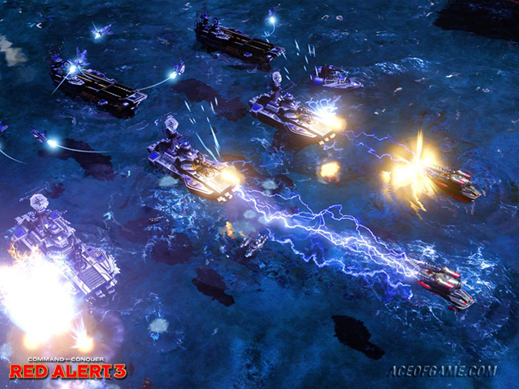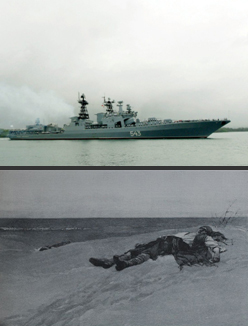
By John Helmer in Moscow
| The Russian Navy announced Thursday morning that its anti-submarine destroyer Marshal Shaposhnikov had successfully liberated the Novoship oil tanker, Moscow University; released its 23-man crew unharmed;and killed or captured the Somali pirates who had boarded the vessel yesterday 800 kms off the coast of Somalia. The tanker had been under way with a cargo of crude bound for China. The 86,000-tonnes of oil on board remains secure, without fire or spill. |  |
This is the fourth success in four deployments by the Russian Navy against Somali pirates off the Horn of Africa. In February of 2009, the missile cruiser, Peter the Great, seized 10 Somalis, three boats, arms, and drugs. The pirates were then off-loaded in Yemen. Following the April 28, 2009, capture of 29 Somalis by the Admiral Panteleyev, who were also put ashore, the Panteleyev was engaged for the second time, responding to a pirate attack in May of 2009 against the Novoship tanker NS Spirit. No prisoners were taken; the pirate speedboat was reported as having been driven off.
Reluctance to release captured Somali pirates to third countries in the region, where they then disappeared, led to the public hint last year that the Russian Navy would take no prisoners.
Among the special measures taken by the Novoship crew, Moscow reports indicate that they disabled the vessel’s engines, preventing the pirates from sailing it towards a pirate haven on the Somali coast. The crew then retreated to a fortified safe-room, well-equipped with water and food, from where they were able to communicate with the company, the shore, and the Russian Navy command. “As a result, the pirates do not have any crew member taken hostage”, Novoship said in a press announcement. Crew member families were alerted through a hotline number, remedying the problems and grievances which family members aired in the press during last August’s Arctic Sea takeover.
In the Shaposhnikov action, Moscow reports say the Russian Navy was assisted by a US Navy helicopter in night-time reconnissance over the tanker. After confirmation that the tanker crew was safely out of pirate hands, locked in the safe-room, a Russian special forces group attacked at 3 in the morning by helicopter gunship. They rappelled down ladders to the deck, fired on the pirates, killing one (the casualty is still being investigated), and capturing the others. The Somalis are being charged under the Russian criminal code, and will be taken to trial, probably at Novorossiysk, the tanker’s home port.
After criticism was published yesterday in the press by European Union sources of the Novoship master’s action to enter a high-risk zone without calling for military escort, today Anatoly Safonov, the Kremlin representative for international cooperation on terrorism, said: “our navy performed excellently. Preliminary work, which was undertaken by vessel owners and personnel training have contributed to this outcome. The crew was ready to act in such an extreme situation.”
Russian officials have defended the Novoship captain, Yury Tulchinsky, saying he had acted properly by contacting the Russian Navy squadron for protection, instead of relying on the Europeans and NATO. Registration by vessels under way in the pirate zone with the EU command in the Horn of Africa is “desirable but not required, because in addition to the European, there are alternative means of protection”, the head of the federal Maritime Security Service, Sergei Fomchenko, said this morning.
Reluctance to open fire has been enhanced by the French judicial investigation of the operation in April 2009, when French commandos attacked pirates who had taken five hostages on board the yacht Tanit, in the Gulf of Aden. Two of five pirates on board were killed, but so was Florent Lemacon, the French owner of the yacht. The investigation of the affair in Rennes has found that it was a French bullet which killed Lemacon.
The French decision to attack was made after commanders and the French government concluded that the pirates were preparing to take the hostages ashore, where, it was thought, rescue would prove impossible.
A statement on the Moscow University operation from the EU Naval Force Commander John Harbour said the rescue was “an excellent operation all around.” He claimed that the EU Naval Force had been working at a tactical level with the Russians, and that EU Naval Force personnel had talked to the Russian crew by VHF radio. He said the EU had offered support to the Russians.











Leave a Reply